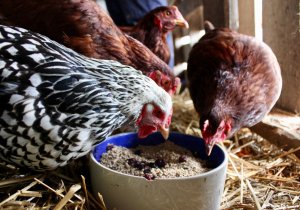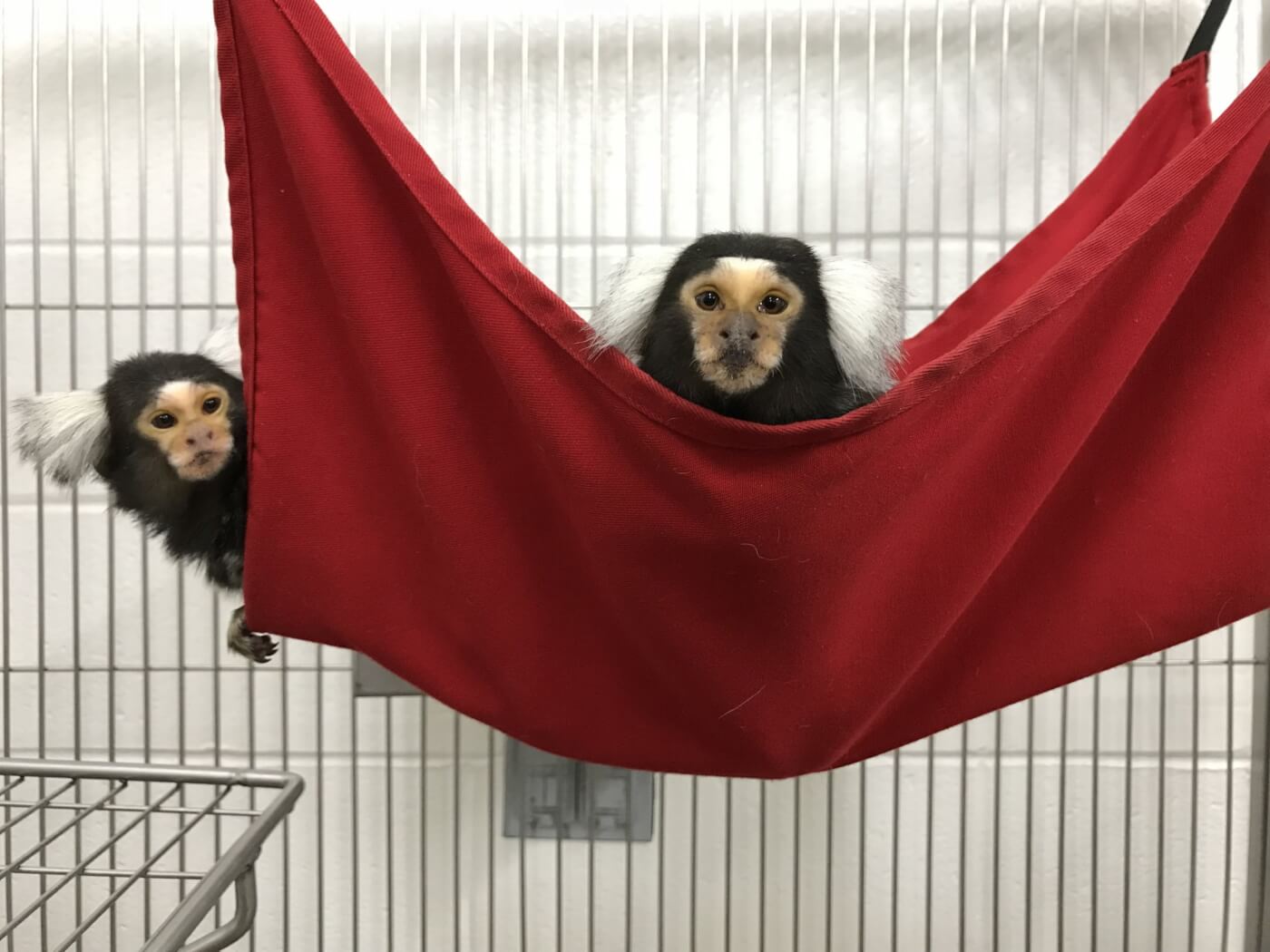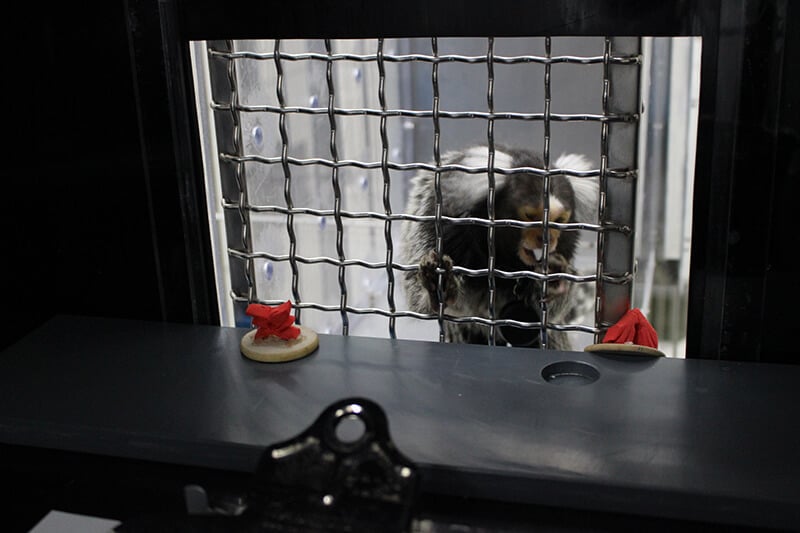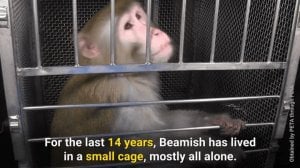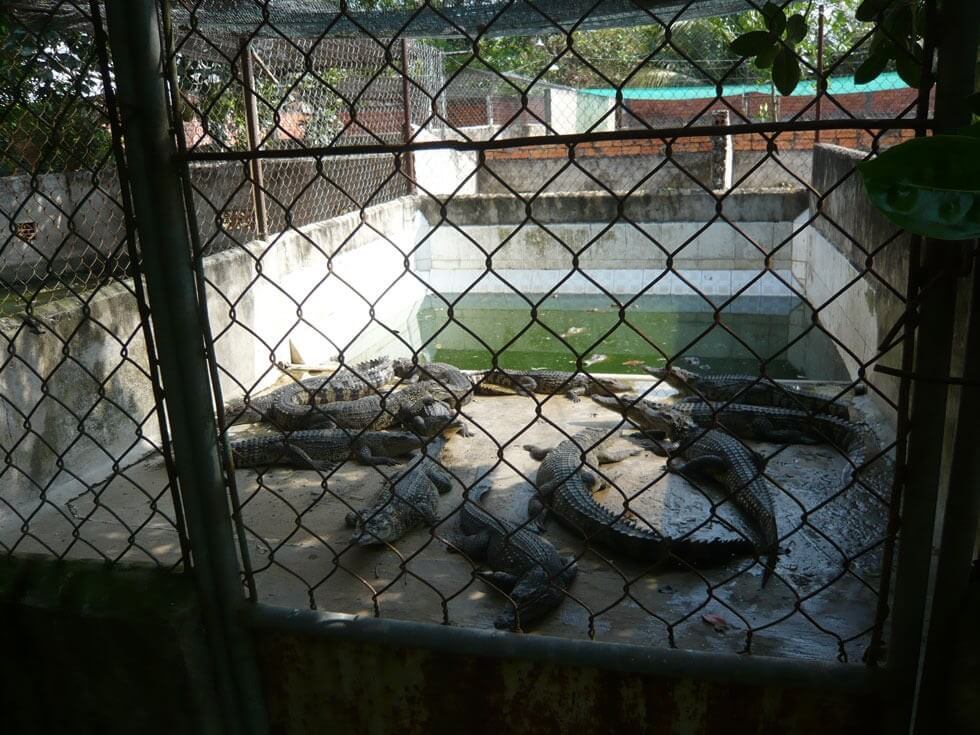Following Kevin Bacon’s admission in People’s “Sexiest Man Alive” issue that he can’t eat bacon anymore after getting to know pigs on his farm in Connecticut, PETA sent a letter today to the actor—who has worked as a spokesperson for the American Egg Board and celebrated his birthday this year by eating a roasted chicken—encouraging him to adopt a chicken so that he can shift his mindset around them, too. PETA is confident that once Bacon learns that hens are clever thinkers and wonderful mothers who cluck back and forth with their unhatched chicks, he’ll cut their meat and eggs from his meals.
“All it takes is meeting one animal and seeing the individual, right?” writes PETA Senior Vice President Lisa Lange. “Don’t be chicken! Throw the eggs out with the bacon and adopt some chickens instead of eating them. Consider how wonderful life would be for chickens if Kyra and you serenaded them while they were surrounded by all the other amazing animals you have kindly taken in.”
Chickens, rescued from the egg industry, at a farmed-animal sanctuary. Credit: PETA
PETA—whose motto reads, in part, that “animals are not ours to eat”—opposes speciesism, a human-supremacist worldview, and offers a free vegan starter kit on its website. For more information, please visit PETA.org, listen to The PETA Podcast, or follow the group on X (formerly Twitter), Facebook, or Instagram.
PETA’s letter to Bacon follows.
Dear Kevin,
Thank you for ditching bacon! All it takes is meeting one animal and seeing the individual, right? May we call on you now to adopt a chicken, preferably a laying hen so that you’d stop eating these dear birds and their eggs, too?
Did you know that chickens possess cognitive abilities on a par with those of dogs? Or that chickens make wonderful mothers? A mother bird will cluck softly to her unhatched babies while sitting on the eggs, and they will chirp back to her and to each other from inside their shells. Of course, none of this occurs when these sweet birds are caged and used as egg-laying machines. They’re confined to small wire cages and forced to lay eggs until their broken bodies tire, and then they’re slaughtered.
Please, don’t be chicken! Throw the eggs out with the bacon, and adopt some chickens instead of eating them. Consider how wonderful life would be for chickens if Kyra and you serenaded them while they were surrounded by all the other amazing animals you have kindly taken in.
Sincerely,
Nicole Cummins
PETA
The post PETA to Kevin Bacon: ‘Don’t Be Chicken! Throw Out the Eggs With the Bacon’ appeared first on PETA.

